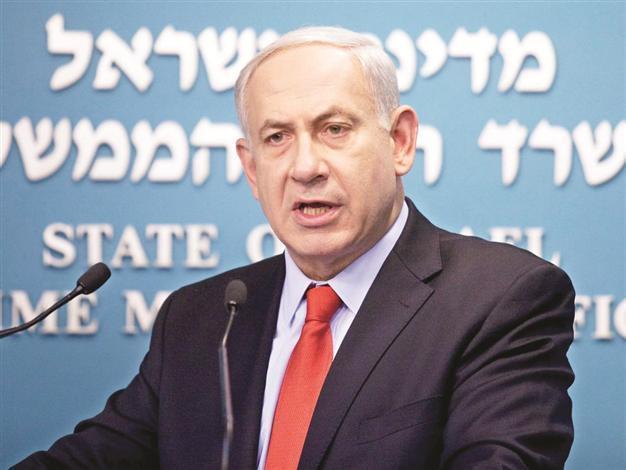Israel seeks formula to mend Turkish ties
JERUSALEM - Hürriyet Daily News

‘Both Israel and Turkey should do as much as they can to restore their relationship,’ Netanyahu says. EPA photo
Senior Israeli officials are seeking “a magical formula” that will preserve the national pride of both
Turkey and
Israel, while allowing the former allies to restore their ties amid current diplomatic friction.
“However, we have not been able to find it yet, and we are open to suggestions from anyone,” a senior Israeli official said.
Describing Turkey and Israel as “stable and important countries in an unstable region,” Israeli Prime Minister Benjamin Netanyahu said Turkey and Israel were searching for ways to resume normality in the ties, as this was crucial for both themselves and the region.
“Since I believe in a common interest, both Israel and Turkey should do as much as they can to restore their relationship,” Netanyahu said during a rare meeting with a group of Turkish journalists at his office in Jerusalem on July 23. “We would like to restore our relations again and both countries are looking for opportunities to do so.”
The relationship between the two hit a historic low after Israel’s deadly May 2010 raid on a Gaza-bound flotilla aid ship that killed eight Turkish and one U.S. citizen of Turkish origin.
The attack was the climax in a two-year long saga of rising tensions between Turkey and Israel, during which the former’s prime minister walked out of the Davos Economic Forum in protest at the latter’s president. The chill in ties has continued due to Turkish demands for an official apology from Israel for the
Mavi Marmara attack and compensation for the raid’s victims.
Turkey and Israel have pursued contacts in order to find a solution to their problems in the past, the official said, adding that these efforts had never ceased and that the two countries still had channels open for negotiations. The Mavi Marmara attack was a traumatic experience not only for Turkey but for Israel as well, the senior official said.
“[This is] because our soldiers were also about to be killed,” he said, adding that it was even more difficult to reach a solution because two countries were traumatized by the incident, instead of just one.
Chill need not be permanentThe chill between Turkey and Israel should not necessarily be permanent, the official said. Despite the ongoing crisis, the two countries have shown their goodwill in dire situations, said the official, noting that Ankara sent planes to Israel in its fight against a huge fire and, in return, that Israel delivered humanitarian relief to the victims of a deadly earthquake in Turkey.
“These issues were sensitive for public opinion in both Turkey and Israel,” he said. According to the same official, the recent developments in the Middle East might bring Israel and Turkey closer since the two nations have common interests in the region.
For instance, both Turkey and Israel have problems with the regime in Syria, the official said. “What is happening in Syria is a tragedy, and greater tragedy is imminent. Every other day many, many innocent people are being killed. Both Turkey and Israel have close ties with the United States, and each of us shares important information about Syria with the Americans. We share the same concern of the possibility of chemical weapons falling into irresponsible hands,” he said.
The official said Israel’s greatest concern was not the fall of Syrian President Bashar al-Assad but the fate of chemical weapons after the regime collapses and instability spreads.
“Chemical weapons in the hands of groups such as Hezbollah and al-Qaeda is the greatest concern for Israel,” he said, adding that there needed to be a “transitional period without any ruler” during which such weapons are secured in Syria.
